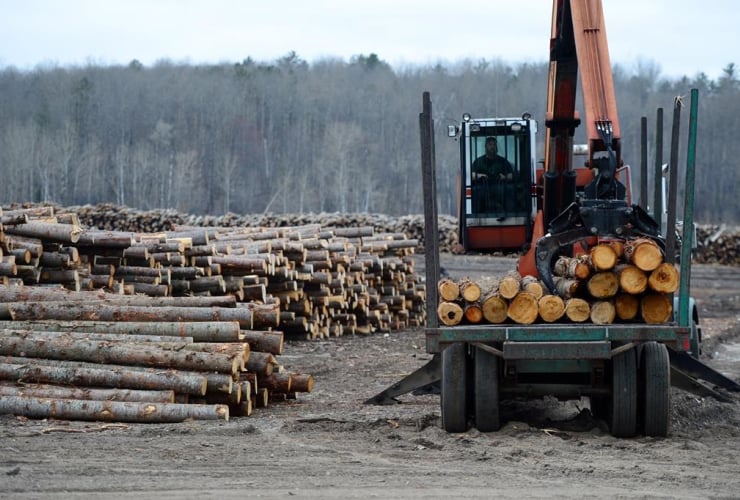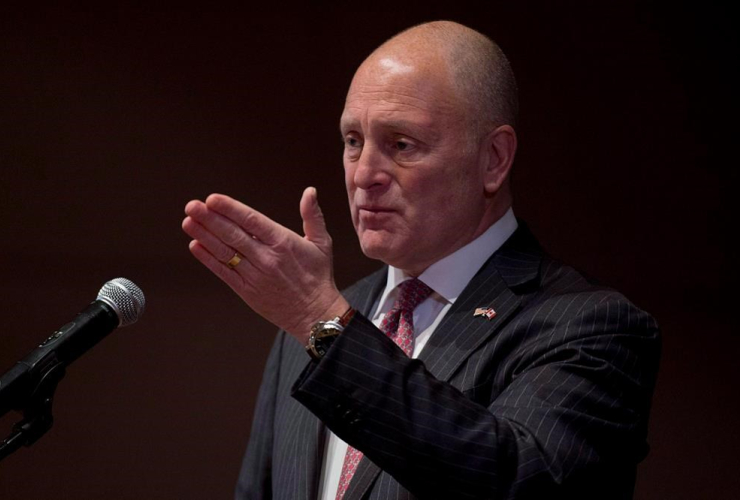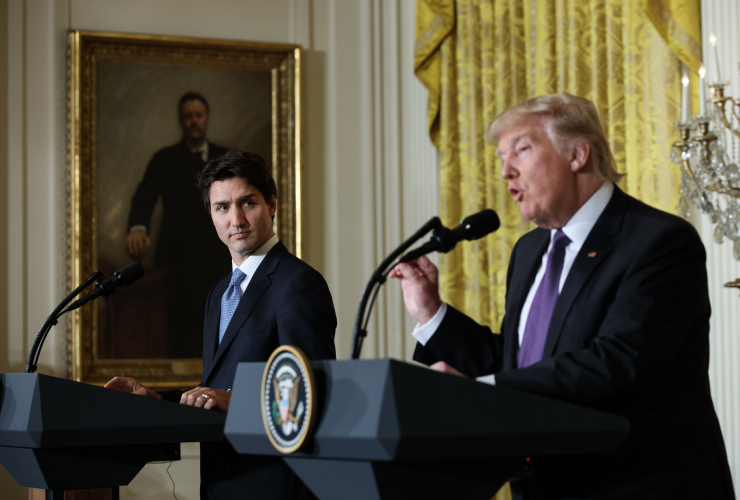U.S. President Donald Trump says he didn't announce the cancellation of NAFTA this week because he likes Prime Minister Justin Trudeau and Mexican President Enrique Pena Nieto.
And Trump says they agreed in phone calls to renegotiate the North American Free Trade Agreement (NAFTA). He says he figured that would be easier than cancelling the continental trade treaty.
Cancellation would have shocked the economy, he said.
Indeed, the mere idea of it, floated by the White House this week, shaved almost two per cent off the Mexican peso and a third of a cent off the loonie, while businessmen and lawmakers were up in arms.
Trudeau said the president was serious and ready to announce a NAFTA pullout before they chatted by phone. The prime minister said he warned Trump of all the disruption that would cause.
Trump threat a negotiating ploy, some analysts say
But numerous analysts watching events this week, as well as people within the Canadian government, believe there's a simpler explanation for what's been going on: Trump wants to flex some muscle entering the negotiations and the threat to pull out is his strongest lever.
Trump said today he reserves the right to back out — but would rather get a deal instead.
The NAFTA withdrawal process is complex, more so than the president portrays. Declaring a withdrawal under Article 2205 doesn't automatically cancel the deal. The president would still have to formally cancel it and even then his administration, businesses, Congress and the courts would tussle over what tariffs would stay or go.
Speaking in Saskatchewan, Trudeau told reporters that he reminded Trump they were both elected on a similar platform of helping people find and keep jobs. The prime minister said he pointed out that a lot of jobs and industries were developed under NAFTA — if the deal were cancelled, it would create too much disruption.
Trudeau says the two agreed instead they could sit down and work on ways to make the deal better by regnegotiating, as has been done in the past.
Reworking the agreement had been one of Trump's key campaign promises, but it's up against a clock. The U.S. Congress has yet to authorize negotiations and there might be less than a year to get a deal before the Mexican election.






Comments